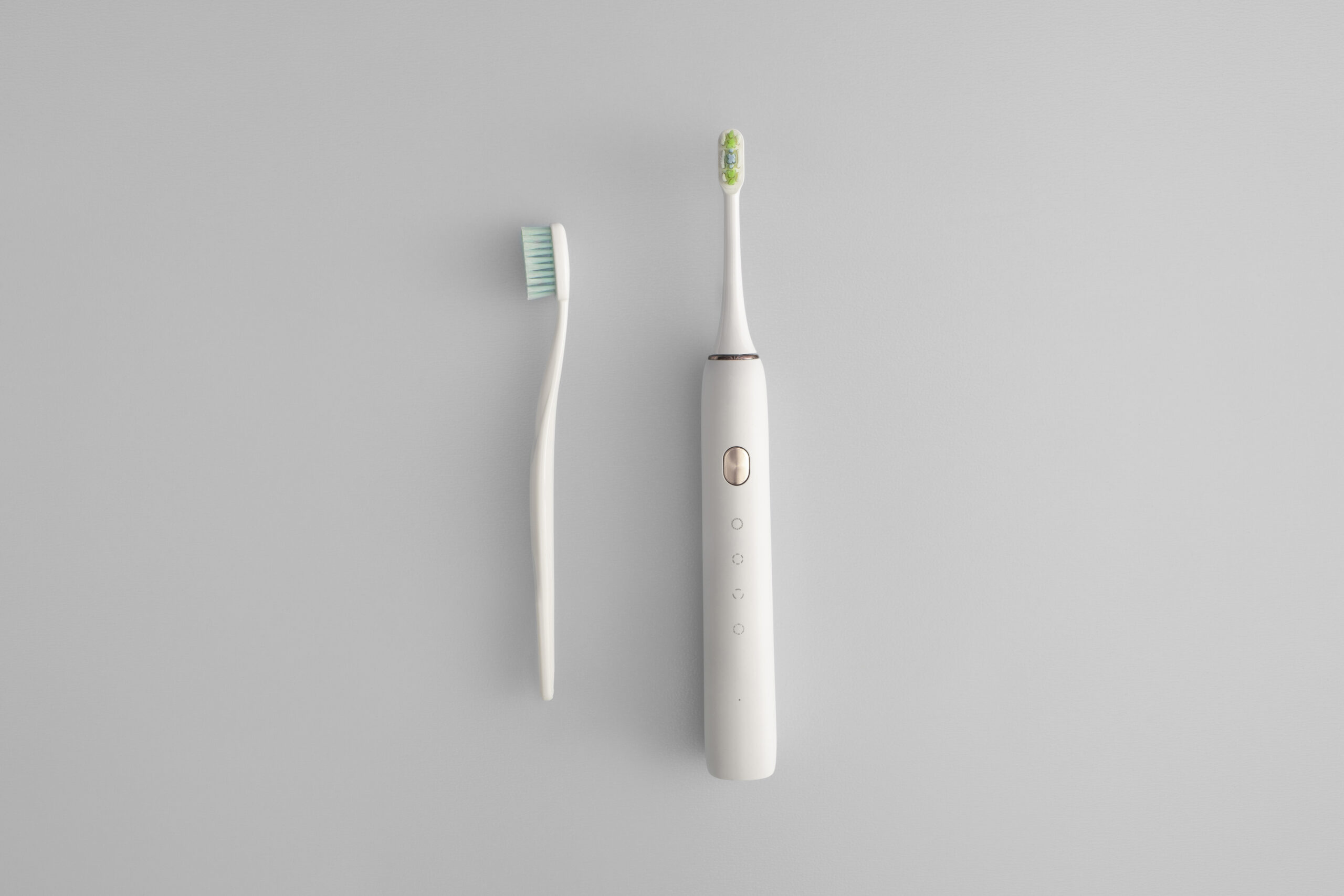Choosing the right toothbrush is a crucial decision that impacts your oral health. One of the biggest choices you’ll face is whether to use a manual or electric toothbrush. Both options can effectively clean teeth, but each comes with unique benefits and considerations. This guide compares manual and electric toothbrushes to help you decide which is the best fit for your oral hygiene routine.
1. Manual Toothbrushes: The Classic Choice
Manual toothbrushes have been a staple of dental care for decades. They are simple, effective, and widely available.
Benefits of Manual Toothbrushes
- Affordability and Accessibility: Manual toothbrushes are budget-friendly and easy to find. They don’t require charging or batteries, making them convenient for travel and everyday use.
- Control and Precision: Users can control brushing pressure and speed, which is helpful for those with sensitive teeth or gums.
- Variety of Options: Manual toothbrushes come in various designs, bristle strengths, and sizes, so you can choose one that suits your preferences.
Drawbacks of Manual Toothbrushes
- Technique-Dependent: Proper brushing technique is essential for effectiveness. Many people struggle to use the correct motions or brush for the recommended two minutes.
- Inconsistency: Without built-in timers or sensors, users may unintentionally brush too quickly or apply too much pressure, which can lead to inadequate cleaning or gum irritation.
2. Electric Toothbrushes: A High-Tech Option
Electric toothbrushes are powered by rechargeable batteries and feature oscillating, vibrating, or rotating motions to enhance cleaning.
Benefits of Electric Toothbrushes
- Improved Plaque Removal: Studies show that electric toothbrushes remove more plaque than manual ones, especially in hard-to-reach areas. Users report a 21% reduction in plaque within three months of use compared to manual toothbrush users.
- Ease of Use: The powered motion makes brushing easier, reducing the need for precise manual technique. Built-in timers ensure you brush for the recommended duration.
- Helpful for Limited Dexterity: Electric toothbrushes are ideal for people with arthritis, mobility issues, or other conditions that make manual brushing challenging.
Drawbacks of Electric Toothbrushes
- Higher Cost: Electric toothbrushes require an upfront investment and replacement brush heads, which can be more expensive than manual options.
- Maintenance and Portability: They need regular charging and are bulkier to carry while traveling.
- Risk of Over-Brushing: Applying too much pressure with an electric toothbrush can damage gums or enamel, though many models now include pressure sensors to mitigate this issue.
3. What Does the Research Say?
Plaque Removal and Gingivitis Prevention
Research supports the effectiveness of electric toothbrushes, particularly those with oscillating or rotating heads. According to a Cochrane review, electric toothbrushes reduce plaque by 11% more and gingivitis by 6% more compared to manual brushes over one to three months.
Consistency in Brushing Habits
Electric toothbrushes promote better brushing habits by simplifying the process and incorporating features like timers and pressure sensors. Studies indicate that users of electric toothbrushes are more likely to brush for the recommended two minutes.
Suitability for Orthodontic and Special Needs Patients
Electric toothbrushes are recommended for patients with braces, as their powered motion cleans effectively around brackets and wires. They are also beneficial for individuals with physical limitations, offering an easy-to-use solution for thorough cleaning.
4. Which One Should You Choose?
Manual Toothbrushes
- Best for individuals with healthy gums who have mastered proper brushing technique.
- A great option for those seeking an affordable and portable tool for oral care.
Electric Toothbrushes
- Ideal for individuals who need help maintaining consistency or have conditions like arthritis.
- Recommended for patients with braces or children who need extra motivation to brush.
5. Final Thoughts
Choosing between a manual and electric toothbrush depends on your needs, lifestyle, and budget. Both options can clean effectively when used correctly, so the key is selecting the toothbrush that helps you brush consistently and thoroughly.
To explore more about maintaining oral hygiene, check out these related resources:
- Best Electric Toothbrush and Oral Hygiene Devices
- Simple Home Care Tips for a Healthy Smile
- Choosing the Right Toothpaste: A Guide for Pecan Tree Family Dentistry Patients
References
- American Dental Association. How to Brush Your Teeth. ADA, 2021.
- American Dental Association. Manual vs. Electric Toothbrushes: Which One Should You Choose?.
ADA, 2021. - Yaacob, M., et al. “Powered versus Manual Toothbrushing for Oral Health.” Cochrane Database of
Systematic Reviews, 2014. - ADA Council on Scientific Affairs. Toothbrushes: Powered and Manual. ADA, 2020.
- Cochrane Oral Health Group. Effectiveness of Electric Toothbrushes in Plaque Removal and Gingivitis
Reduction. Cochrane, 2017. - Zimmerman, G. R., et al. “Effects of an Oscillating-Rotating-Pulsating Power Toothbrush on Plaque and
Gingivitis in a Three-Month Clinical Trial.” American Journal of Dentistry, 2015. - American Academy of Orthodontics. Electric Toothbrushes and Orthodontic Care. AAO, 2021.



